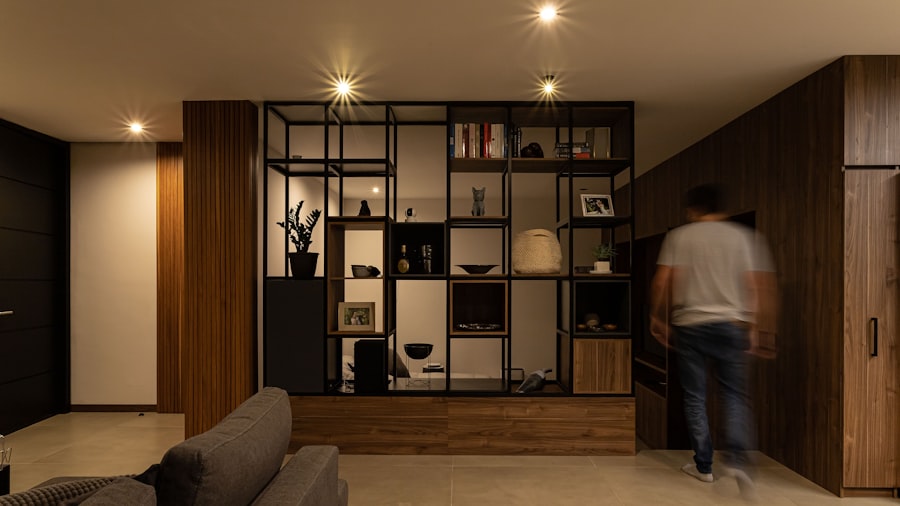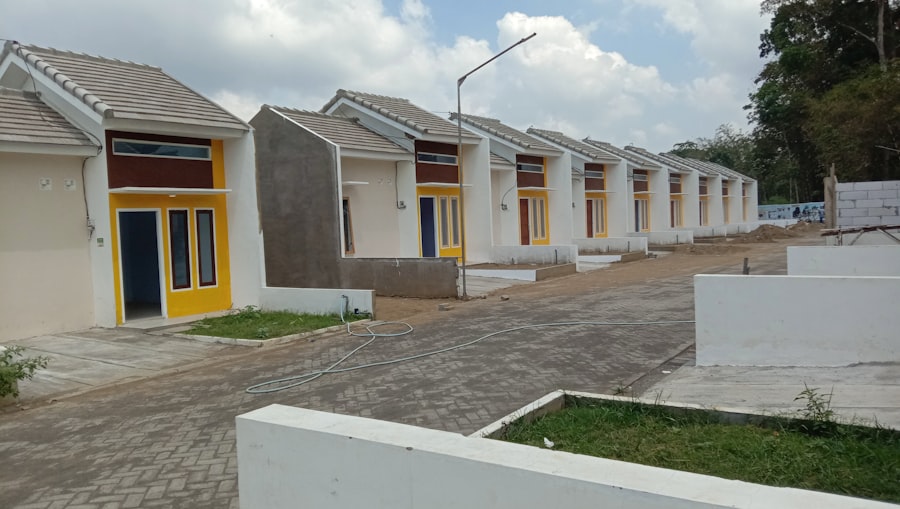Modular homes represent a unique approach to residential construction, diverging from traditional building methods. These homes are prefabricated in sections, or modules, in a factory setting before being transported to the building site for assembly. This method allows for greater efficiency and precision, as the controlled environment of a factory minimizes the impact of weather and other external factors that can delay construction timelines.
Each module is built to meet the same building codes and standards as site-built homes, ensuring that they are just as durable and safe. The modular construction process typically involves several stages, including design, manufacturing, transportation, and assembly. Once the modules are completed in the factory, they are shipped to the site where they are placed on a pre-prepared foundation.
The assembly process can be remarkably quick, often taking just a few days to complete the structure. This efficiency not only reduces labor costs but also allows homeowners to move into their new residences much sooner than with traditional construction methods. Furthermore, modular homes can be designed in various styles and sizes, catering to a wide range of aesthetic preferences and functional needs.
Key Takeaways
- Modular homes offer a flexible and efficient alternative to traditional homebuilding.
- Choosing a modular home provides benefits like cost savings, faster construction, and quality control.
- Modular home dealers assist with design, customization, and navigating the buying process.
- Financing options for modular homes are available and can be tailored to fit buyers’ needs.
- A smooth buying experience involves careful dealer selection, clear communication, and understanding the building process.
Benefits of Choosing a Modular Home
One of the most significant advantages of modular homes is their cost-effectiveness. Because they are built in a factory setting, manufacturers can take advantage of economies of scale, which often translates into lower prices for consumers. Additionally, the speed of construction means that homeowners can save on labor costs and reduce the overall time spent waiting for their new home to be completed.
This financial efficiency makes modular homes an attractive option for first-time buyers or those looking to downsize. Another compelling benefit is the environmental impact of modular homes. The factory-based construction process generates less waste compared to traditional building methods, as materials can be reused or recycled more effectively.
Moreover, many modular home manufacturers are increasingly adopting sustainable practices, such as using energy-efficient materials and incorporating green technologies into their designs. This commitment to sustainability not only benefits the environment but can also lead to lower utility bills for homeowners in the long run.
How Modular Home Dealers Can Help

Modular home dealers play a crucial role in the home-buying process by serving as intermediaries between manufacturers and consumers. They possess extensive knowledge about various modular home designs, features, and pricing options, which can be invaluable for prospective buyers navigating this unique market. A reputable dealer will guide clients through every step of the process, from selecting a suitable model to understanding local zoning regulations and building codes.
In addition to providing information about available models, modular home dealers often offer customization options that allow buyers to tailor their homes to their specific needs and preferences. This can include selecting floor plans, finishes, and energy-efficient upgrades. By working closely with a dealer, buyers can ensure that their new home reflects their personal style while also meeting practical requirements such as space for a growing family or accessibility features for aging residents.
Finding the Right Modular Home Dealer
| Criteria | Description | Importance Level | Typical Range/Value | Notes |
|---|---|---|---|---|
| Dealer Experience | Number of years the dealer has been in business | High | 5 – 30+ years | More experience often means better knowledge and service |
| Customer Reviews | Average rating from customer feedback | High | 3.5 – 5 stars | Check multiple platforms for unbiased reviews |
| Model Variety | Number of modular home models offered | Medium | 10 – 50+ models | More options allow better customization |
| Warranty Coverage | Length and scope of warranty provided | High | 1 – 10 years | Comprehensive warranty adds peace of mind |
| Pricing Transparency | Clarity and detail in pricing and contracts | High | Clear itemized quotes | Avoid hidden fees and unexpected costs |
| Financing Options | Availability of financing plans or assistance | Medium | Multiple plans or partnerships | Helpful for budget management |
| Customer Support | Responsiveness and helpfulness of dealer staff | High | 24/7 support or business hours | Good support improves overall experience |
| Customization Flexibility | Ability to modify floor plans and features | Medium | High, Medium, Low | Important for personalizing your home |
| Delivery Time | Average time from order to home delivery | Medium | 2 – 6 months | Faster delivery preferred but depends on complexity |
Choosing the right modular home dealer is a critical step in ensuring a successful home-buying experience. Prospective buyers should begin by researching local dealers and reading reviews from previous customers. This feedback can provide insight into the dealer’s reputation, customer service quality, and overall satisfaction levels among clients.
Additionally, visiting showrooms or model homes can give buyers a tangible sense of the quality and craftsmanship offered by different dealers. It is also essential to consider the dealer’s experience and expertise in the modular home market. A well-established dealer with a strong track record will likely have established relationships with reputable manufacturers and a deep understanding of local building codes and regulations.
Engaging with a knowledgeable dealer can help streamline the process and mitigate potential challenges that may arise during construction or permitting.
Customizing Your Dream Home
One of the most appealing aspects of modular homes is the ability to customize them according to individual preferences and lifestyle needs. Many manufacturers offer a range of floor plans that can be modified to suit specific requirements, whether that means adding extra bedrooms for a growing family or creating an open-concept living space for entertaining guests. Buyers can also select from various exterior finishes, roofing options, and landscaping features to enhance curb appeal.
Beyond aesthetic choices, customization can extend to energy efficiency and smart home technology. Many modular homes can be equipped with solar panels, high-efficiency HVAC systems, and smart home devices that allow homeowners to control lighting, security, and climate remotely. These upgrades not only improve comfort but can also lead to significant savings on energy bills over time.
By collaborating with their dealer and manufacturer, buyers can create a home that is not only visually appealing but also functional and sustainable.
Financing Options for Modular Homes

Financing a modular home can differ from traditional home loans due to the unique nature of their construction. However, many lenders offer financing options specifically tailored for modular homes. Buyers should explore various financing avenues, including conventional mortgages, FHA loans, and VA loans if they qualify.
Each option has its own set of requirements and benefits, so it is essential for buyers to conduct thorough research or consult with a financial advisor. Additionally, some manufacturers may have partnerships with lenders who specialize in modular home financing. These lenders often understand the nuances of modular construction and may offer more favorable terms or streamlined application processes for buyers.
It is advisable for prospective homeowners to gather multiple quotes from different lenders to compare interest rates and terms before making a decision.
The Process of Building a Modular Home
The journey of building a modular home typically begins with selecting a design and finalizing plans with the dealer or manufacturer. Once the plans are approved, the manufacturing process commences in a controlled factory environment where modules are constructed simultaneously. This phase includes everything from framing and insulation to plumbing and electrical work, all performed under strict quality control measures.
After the modules are completed, they are transported to the building site where they are assembled on a pre-prepared foundation. This assembly process is often completed within days, significantly reducing the time it takes to move into a new home compared to traditional construction methods. Following assembly, final touches such as interior finishes, landscaping, and utility connections are completed before the home is ready for occupancy.
Throughout this process, communication between the dealer, manufacturer, and homeowner is vital to ensure that any issues are addressed promptly.
Tips for a Smooth Modular Home Buying Experience
To ensure a seamless experience when purchasing a modular home, prospective buyers should start by establishing a clear budget that includes not only the cost of the home itself but also additional expenses such as land acquisition, site preparation, permits, and utility connections. Having a comprehensive understanding of total costs will help avoid surprises later in the process. Engaging in open communication with both the dealer and manufacturer is crucial throughout the entire journey.
Regular check-ins can help keep everyone aligned on timelines and expectations while allowing for any necessary adjustments along the way. Additionally, being proactive about understanding local zoning laws and building codes will help streamline approvals and prevent potential delays. Finally, it is beneficial for buyers to remain flexible during the process.
While it is essential to have specific goals in mind regarding design and features, being open to suggestions from experienced professionals can lead to innovative solutions that enhance both functionality and aesthetics in ways that may not have been initially considered. By approaching the modular home buying experience with thorough preparation and an open mind, buyers can create their ideal living space tailored perfectly to their needs.



